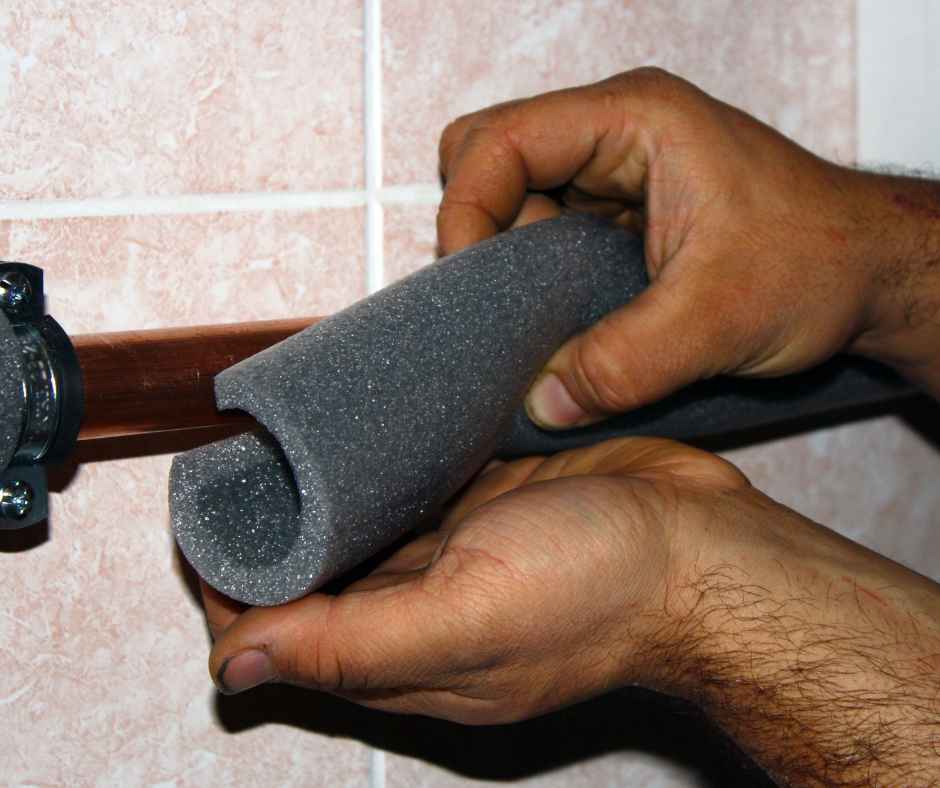Signs You May Have Frozen Pipes

As the temperatures drop, frozen pipes become a common concern for homeowners. While frozen pipes can cause significant damage, early detection can save you from costly repairs. This guide will walk you through the signs of frozen pipes and provide helpful tips on how to prevent frozen pipes in the first place.
What Causes Frozen Pipes?
Frozen pipes occur when the water inside them freezes due to extremely low temperatures. This can happen to both indoor and outdoor pipes, especially in unheated or poorly insulated areas like basements, garages, or crawl spaces. When water freezes, it expands, creating pressure within the pipe that can lead to cracks or bursts.
Signs of Frozen Pipes
Knowing the signs you may have frozen pipes can help you act quickly and avoid major plumbing disasters. Look out for these key indicators:
Reduced Water Flow
One of the earliest signs of frozen pipes is a noticeable drop in water pressure. If you turn on a faucet and only a trickle comes out, it could mean the pipe feeding that faucet is frozen.
Strange Noises
Frozen pipes often produce unusual noises, such as banging, clanking, or gurgling. These sounds occur when water tries to push through ice blockages in the pipe.
Visible Frost on Pipes
In exposed areas like basements or attics, you may notice frost or condensation forming on the outside of pipes. This is a strong visual sign that the pipe’s interior is freezing.
Unpleasant Odors
If a frozen pipe is completely blocked, it can cause water or waste to back up into your home. This often results in foul odors coming from sinks, toilets, or drains.
Bulging Pipes
Pipes under stress from freezing water may develop bulges or cracks. If you spot these physical deformities, it’s a clear sign of frozen pipes.
No Water at All
In extreme cases, a frozen pipe may completely block the flow of water, leaving you without running water in certain areas of your home.
What to Do If You Have Frozen Pipes
If you’ve identified signs of frozen pipes, taking swift action can prevent further damage. Follow these steps:
Turn Off the Water Supply
Shut off the water at the main valve to reduce the risk of a pipe burst and flooding.
Warm the Pipes Gradually
Use a hairdryer, space heater, or warm towels to gently thaw frozen pipes. Avoid using open flames or high-heat devices, as these can damage the pipes.
Open Faucets
Turn on faucets connected to the frozen pipe. This helps relieve pressure and allows water to flow once the ice melts.
Inspect for Damage
After thawing the pipes, carefully check for any cracks or leaks. If you find damage, call a professional plumber immediately.
How to Prevent Frozen Pipes
The best way to deal with frozen pipes is to prevent them altogether. Here are some practical tips on how to prevent frozen pipes in your home:
Insulate Pipes
Wrap pipes in foam insulation or heat tape, particularly those in unheated areas. This extra layer of protection keeps pipes warmer in cold conditions.
Seal Gaps and Cracks
Check for drafts around windows, doors, and pipes entering your home. Seal any gaps with caulking or weather stripping to keep cold air out.
Keep the Heat On
Maintain a consistent indoor temperature, even when you’re away. Setting your thermostat to at least 55°F can prevent pipes from freezing.
Let Faucets Drip
Allowing faucets to drip slightly during extremely cold weather can keep water moving and reduce the risk of freezing.
Open Cabinet Doors
Open the doors under sinks to allow warm air to circulate around pipes, especially in kitchens and bathrooms.
Disconnect Outdoor Hoses
Remove and store garden hoses before winter hits. This prevents water from freezing in the hose and backing up into your plumbing system.
When to Call a Professional
While some frozen pipe issues can be addressed with DIY methods, it’s always best to consult a professional plumber for thorough inspections and repairs. Frozen pipes can quickly escalate into larger problems, such as burst pipes or water damage, if not handled properly.
Protect Your Home from Frozen Pipes Today
Frozen pipes are a serious issue that can disrupt your daily routine and lead to expensive repairs. By staying vigilant and recognizing the signs you may have frozen pipes, you can act quickly to mitigate the damage. Additionally, following preventive measures ensures your plumbing stays safe throughout the winter months.
If you suspect frozen pipes in your home or need help learning how to prevent frozen pipes, Blue Bear Plumbing, Heating & Air is here to assist. We proudly offer expert frozen pipe repair services to protect your home and restore your peace of mind.
Contact Blue Bear Plumbing, Heating & Air today for all your frozen pipe repair needs.
Contact Us Today

Routine maintenance is vital for the longevity of your plumbing, heating, and air conditioning systems. Sign up for our Blue Care Maintenance Plan for annual service and exclusive membership benefits, including:
- Priority scheduling
- Waived service fee during normal business hours
- 10% discount on service calls
- 3% discount on new installations
- Two-year parts and labor warranty on new equipment






